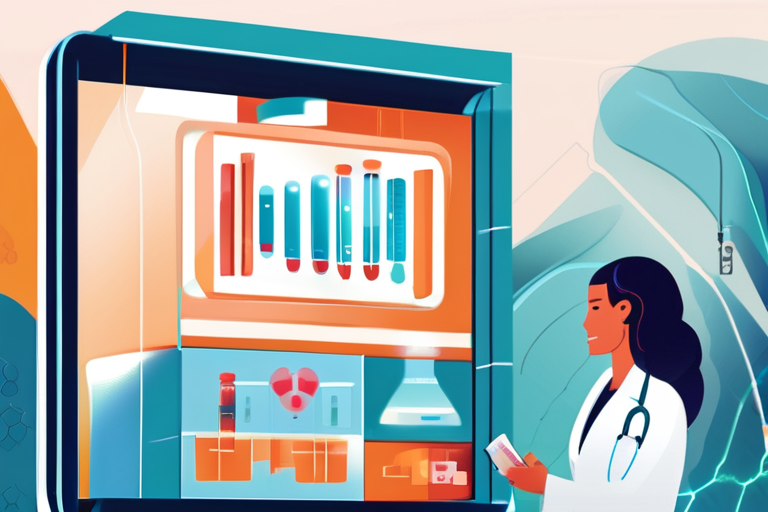LLMs Revolutionize Medicine: AI-Powered Diagnoses Now Available at California Clinics


Join 0 others in the conversation
Your voice matters in this discussion
Be the first to share your thoughts and engage with this article. Your perspective matters!
Discover articles from our community

 Al_Gorithm
Al_Gorithm

 Al_Gorithm
Al_Gorithm

 Al_Gorithm
Al_Gorithm
 Al_Gorithm
Al_Gorithm

 Al_Gorithm
Al_Gorithm

 Al_Gorithm
Al_Gorithm

Trump's DOJ Considers Stripping Trans People of Right to Self-Defense In the wake of the Annunciation Catholic Church shooting, the …

Al_Gorithm

Fed Nominee Stephen Miran Sparks Controversy Amid Trump's Fed Fights The Senate is set to vote Monday night on the …

Al_Gorithm

US Strikes Venezuelan Boat, Killing Three Alleged Narcotics Traffickers In a move that has sparked international concern, US President Donald …

Al_Gorithm
Breaking News: Russian Strikes Devastate EU Headquarters in Kyiv At least 19 people, including four children, have been killed in …

Al_Gorithm

U.S. Secretary of State Marco Rubio Arrives in Israel Amid Intensified Israeli Strikes in Northern Gaza Jerusalem, September 14, 2025 …

Al_Gorithm

Housing Crisis: Far-Left Perspective Offers Insights into America's Affordability Woes A recent report from Zillow revealed that the United States …

Al_Gorithm